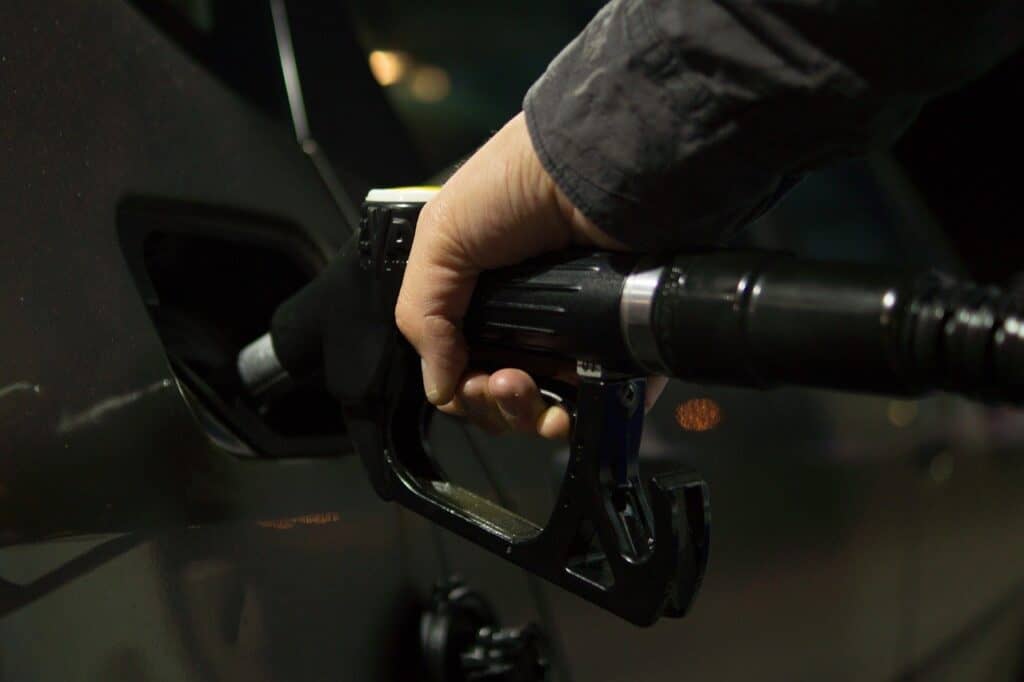We’ve all used baby powder at some point in our lives. It can be very handy for a variety of uses and not just for keeping an infant smooth and dry as necessary. However, in recent years, baby powder has become a more controversial item and there are some health hazards associated with it, but is flammability a major concern with baby powder too?
Baby powder can be flammable but is not always. Both talcum and cornstarch-based baby powders can be flammable when dispersed in air, due to the higher surface area and greater oxygen to fuel ratio. However, neither type of powder will catch fire easily when clumped together in the bottle.
It is important to understand any safety concerns with anything you use around a child. Let’s take a closer look at the types of baby powder and the factors you should consider. Here’s what you need to know.
Your # 1 priority is keeping your family safe. As a firefighter, I recommend everyone has updated smoke detectors that don’t require battery changes, like these ones from Kidde, a fire extinguisher, like this one from Amerex, and a fire escape ladder if you have bedrooms above the first floor, I recommend this one from Hausse.
Also read: What Makes Something Flammable?
What Is Baby Powder?

Before we take a look at how baby powder reacts to flames and sparks, it’s useful to take a look at what, exactly, baby powder is.
Traditionally, baby powder was made from the mineral talc, and often when not marketed as “baby powder” it was marketed as “talcum powder”.
These two products were absolutely interchangeable though you may have paid a slight premium for the marketing surrounding the “baby” version.
However, this isn’t always the case anymore, as we shall see in a minute – the use of talc as a baby powder is now somewhat controversial, and sometimes baby powder is made out of cornstarch.
Yes, the same cornstarch that you use in the kitchen and though this product isn’t entirely free of controversy – it’s considered to be less risky than talc in many places and thus, “baby powder” now (particularly in North America) is usually made from cornstarch.
Also read: Is Cornstarch Flammable? Will it Catch Fire?
Why Is It No Longer Recommended Around Babies?
There has been some recent controversy regarding the safety of baby powder.
The first is that powdered materials, by their very nature, tend to end up in the air and that means when you use baby powder both you and your baby are inhaling amounts of very fine dust.
Now, this may or may not be harmful (the jury’s out on this and I can’t find any data at all relating to baby powder actually causing health problems), but many parents argue, sensibly in our view, that they’d prefer not to take the risk anyway.
The second issue is not regarding babies per se, but rather the talc-based formula that has now been discontinued completely in North America.
This formula has been linked to ovarian cancer in women.
It is, again, worth noting that this link has not formally proven, but it’s strong enough that over 1,000 women with ovarian cancer are suing Johnson & Johnson over its baby powder and the company withdrew all talc-based products from sale in North America in 2020 in response.
There is, of course, potentially a third reason not to use baby powder – it’s flammability.
Also read: Is Non-Dairy Creamer Flammable? Can it Explode?
Is It Flammable?
Nearly all substances in powder form when they are in clouds in the air are flammable. This is because tiny particles have a large surface area compared to their volume and because they are tiny, this surface area is nearly completely exposed to oxygen.
Thus, a substance which is not normally flammable can become flammable when in powdered form.
So, it is for this reason that baby powder moves out of the “combustible” category and into the flammable one.
If you intend to use baby powder, it’s a good idea to do so away from sources of naked flame (and please, don’t smoke around babies) and in a well-ventilated space so that the powder in the air can easily disperse.
You should be aware, of course, that in the bottle with the lid closed – baby powder acts more like a solid lump of material than a powder and it’s unlikely to ignite.
But you’d still be best off keeping it away from naked flames or sparks and ideally in a cold, dark place when not in use.
You can see what happens when baby powder is sprinkled on a flame here:
Does Cornstarch Explode?
Yes, cornstarch as well as corn flour can explode easily if it is in sufficient quantities in the air when exposed to a naked flame.
You can see an example of how easy it is for corn starch to explode at the video below:
Also read: Is Dust Flammable? When To Worry…
What About Talcum Powder?
Yes, talcum powder can explode and in the same way that cornstarch explodes.
It’s the ratio of air to surface area that’s the key component and as you can see from the video below, it really can explode in a terrifying manner:
Is Talc Combustible?
The funny thing is that while talcum powder itself can explode. Talc the mineral is not even combustible and won’t burn without the use of extremely high temperatures.
If you use a coarser grain of powder than that found in baby powder, talc can be used as a fire extinguisher!
However, it is vitally important to distinguish between these two products – if you use baby powder to try and put out a fire, the odds are pretty good that you’re just going to make things worse, possibly much worse.
Related Articles
Is Chalk Flammable? It Depends…

